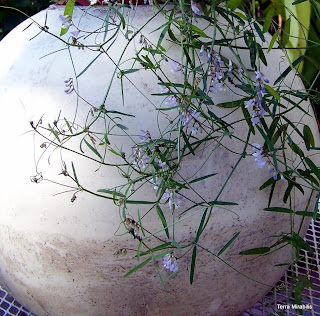Taking the dogs for a walk to the nearby pocket park, I noticed this horrible sight: hundreds and hundreds of lubber nymphs. I've never seen them clustered in such large numbers before, so I guess for those of us in Florida, we're in for another bad year.
Now is the time to check your garden for the nymphs because they tend to cluster together and are susceptible to Sevin or other insecticides. As they get bigger, they disperse and are immune to everything but being squashed.
Reading And Writing
-
My name is Ben, and I am a professional gardener. Some might consider me
lucky; some might feel sorry for me. A career in gardening is something
many loo...
12 hours ago



























.jpg)



